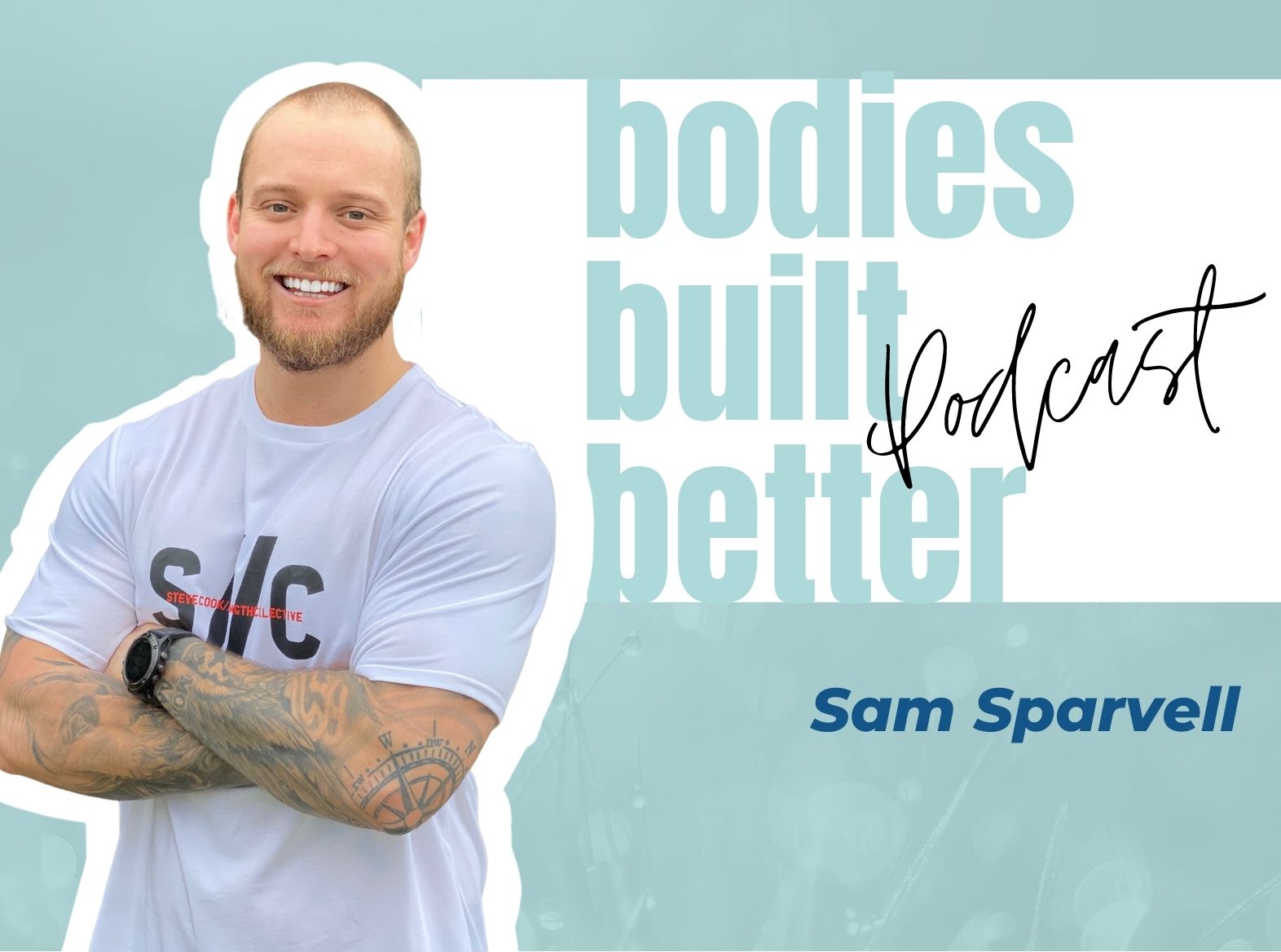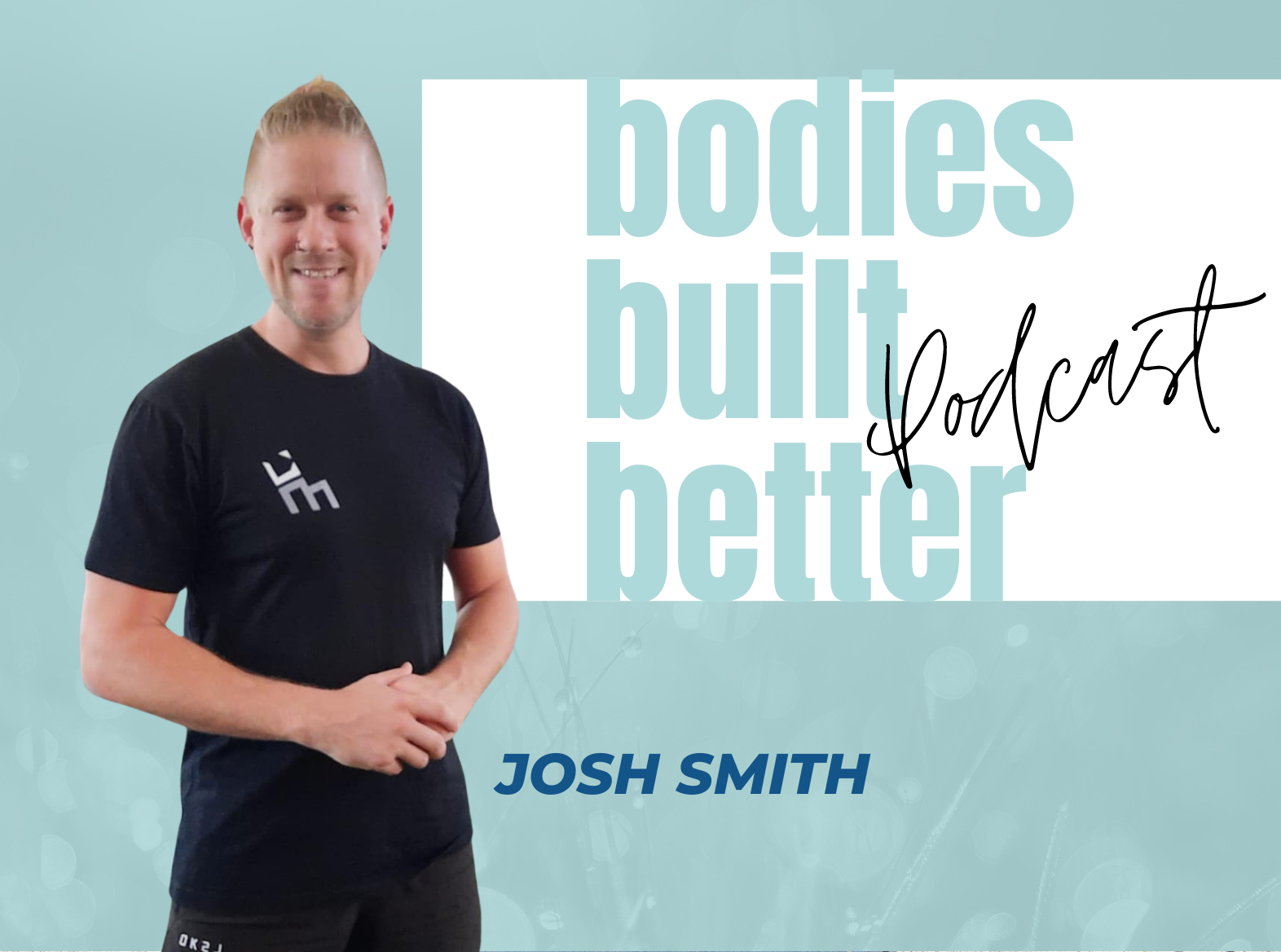Jackie 0:11
Hey, this is Jackie Tann and welcome to the body’s built better podcast. On the show, we chat with experts, athletes, coaches and authors to educate and inspire you. We explore the body’s incredible ability to heal, adapt, and evolve so you could crush limitations reconnects your body and mind and discover your extraordinary potential.
Jackie 0:42
On today’s episode, I chat with South Australian police officer Sam Sparvell. Now, Sam is a client of mine. And you’ll find out how that came to be in this interview. But let’s just say there was a fall and the concrete one.
But since having Sam as a client and hearing his stories, which again, you’ll hear in this interview, it became very clear that Sam, even though he has dealt with some pretty horrific events. His approach to his body, mind health and wellness and life in general, is that, have I pretty switched on and balanced guy, so much so that I was actually a little shocked to find out how young he was, or is at the very tender age of 28. He speaks from such a wise and worldly place. I just learned so much from him just from chatting during our treatments. And I know you’ll learn a lot from him as well, whether you’re someone dealing with chronic pain or recovering from injury, whether you’re trying to navigate shift work, or some hard events in your life, Sam gives us some really great tools on how to manage our physical, mental and emotional health, no matter what line of work you’re in. So enjoy this episode with Sam Sparvell. Sam Sparvell, thank you so much for chatting with me on the body’s built better podcast today. I really want to get straight into this because I’m excited to chat with you because I feel like it takes a very special person to want to put their life at risk for the sake of others. So can you tell me what was your motivation to join SA police
Sam 2:43
Right on. Sure thing. And first, thanks for having me on the show, Jackie. I feel we’re, I feel really privileged and honored to be on the show amongst some of these amazing guests you’ve had on board. So yeah, I’m pumped to be on here. So anyway, back to your question. So why did I join SAPOL? I guess what drove me to join SAPOL I think, and everyone’s motivations are shaped by the experiences that they’ve had in their life. I was very privileged to grow up on the south coast. And we had, I had a very strong sense of community growing up in a very positive relationship with police from a very young age. I remember, policeman, Bob was his name who’d come to the kindergarten and talked to us about road safety and all those sorts of things. And even as I grew up as a kid and a teenager, a really positive relationship, and I had a very, I guess I’m very lucky, it’s a very safe place to grow up. So I guess this sense of community and played a role already at a young age before I even realized my reasons for joining SAPOL. And there’s a quote by Winston Churchill that I found pretty relevant. A few years ago, I came across this in my life policing and, and why I became a police officer. He says that all the great things are simple, and many can be expressed in a single word. Freedom, justice, honor, duty, mercy, and hope. And I guess I thought, what role can I kind of experience all these amazing and great things? And I’ve been, I’ve been pretty lucky to be to experience all of those in SAPOL and, but as well, if I’m completely honest, Jackie, I really wanted to be like Batman. where like, this is probably as close as I’m going to get. I’m not a billionaire. But, uh, I mean, I get to do some pretty Batman like things. So that’s awesome. So, so yeah, so being a police officer. It started from a very young age really, I didn’t realize until the opportunity came up, and obviously very heavily involved in school sports. I watched sports for the start variable. Did my football feel into bodybuilding at a young age as well. So I was always a part of a team. Like I said, motivations are shaped by the experiences that we have. So I found myself there.
Jackie 5:14
So let’s talk about more of that. That physical side of things and the training involved. in becoming a police officer? What is the physical side of it, the fitness side of it? And how do you prepare for that? Physically and mentally?
Sam 5:29
Yeah, great question. Um, so the physical standards have changed since I went through the police academy. And in all honesty, I was already in pretty good physical shape leading into the, leading into the entry. But I don’t think I had fully appreciated how much was required between the years at that point. So for anyone listening anyway, and is curious about the physical side of things, we had to get a beat test score of about, I think it was 10, on the beat test score, I had to do a number of push-ups and sit ups. And it was nothing, nothing out of this world. And we also had to do an obstacle course, at the Academy that was great fun, I really felt like you’re a part of something bigger than you, I guess, you know, you’re dragging a tire, dummy, 50 meters, and then you’re running and people yelling at you, it’s, it’s a lot of fun. It’s kind of cool. And so physically, you have to have a probably I would suggest, an above standard level of fitness. There were times during the Academy where we just got absolutely slammed by the PJs. And lots of I mean, lots of physical training at the academy itself as well. I can’t speak for what the standards are now. But what I went through, it was it, was togiak, but completely achievable to anyone who would put their mind to their training and get it done. In regard to mentally what I did to prepare. I’m completely honest with you, did absolutely nothing. I didn’t know what to expect. It’s funny. I remember pulling into the car park of the logs Academy and sitting in my car on the first day thinking, What on earth have I got myself into? Like, is this going to be like boot camp in the army? Am I just gonna get yelled at for seven months straight? Yeah, I really had no idea. I’d already known a single police officer closely. And he didn’t really give me too much. I think he did that on purpose to be completely honest.
Jackie 7:33
And so when you did go through it, were there those mental challenges that arose
Sam 7:41
at the academy?
Sam 7:44
Yes, and No, I guess not the challenges I was expecting. There were different challenges. Honestly, the first time we had to do a more visit. And so that was I’ve never seen you know, a body before. So that came in. That was pretty confronting, I remember the first body I saw was a dead ringer for mine. The pan was a dead ringer for my dad. And I, he’s still with us. But I just remember seeing this, this, this guy that just looks like my dad. And it was, it was kind of shocking. But um, I look back now and all of those kinds of experiences were there to prepare us for when we eventually make our way out on the road. So they did, they did. They did stuff to help us prepare mentally, but there’s nothing that can prepare you for the rule. Well,
Jackie 8:38
yeah, yeah, that’s right. And we’ll get into that a bit more. But before we do, the reason I came to know you was from a very good mutual friend who I recently had on the podcast, Matt Jones. You suffered a spinal injury shortly after graduating, which resulted in a lumbar discectomy. about what happened. What did you go through? Yeah. And then tell us about the physical pain and limitations and everything that went with it.
Sam 9:14
Right on. Okay, cool. So, yeah, shortly after graduating, I found myself on a roof of an abandoned library. And people have been trying to burn it down. So long story short, on the roof of an abandoned library, and I made the quickest way I could possibly make off of the roof. And highly, highly would recommend avoiding Yeah, throwing yourself from a roof. I think it was more the landing than the fall was kind of unexpected. So
Listen to the complete interview on our Podcast!
Where to find Sam:
Website: www.onthepath.com.au
Instagram: @onthepath.aus
Get in touch: jackie@jackietann.com | @jackietann_rmt












